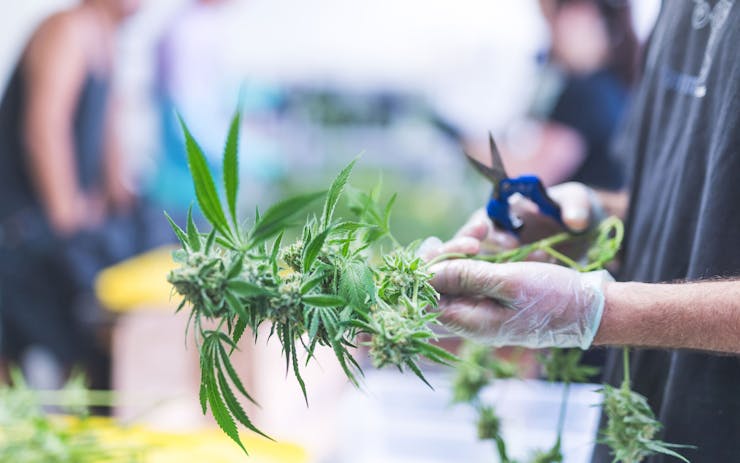In a November 2017 announcement, Health Canada detailed their intent to license small scale commercial cannabis cultivators and processors, saying that it hoped to “enable a diverse, competitive legal industry comprised of both large and small players in regions across the country.”
Now, nine months after companies were given the go ahead to apply for micro level licenses, Health Canada has issued just the second micro license while more than 100 companies have been authorized to cultivate and process cannabis under the standard license designation.
How Do Micro Cultivation Licenses Differ from the Standard Cultivation License?
The micro sub-classes within both the cultivation and processing categories were meant to allow smaller players into the fold, with reduced compliance requirements.
Differing from the standard cultivation licence, micro cultivators are limited to growing within 200 square meters of canopy space, and standalone micro processors (not on an existing micro cultivation site) can only process up to 600 kilograms of cannabis in a year.Join the Leafly Canada CommunityLicenses under this sub-class aren’t required to have alarms or conduct visual monitoring, but otherwise face the same licensing conditions and restraints as standard operators.
It’s not that small scale craft growers aren’t interested—there certainly have been companies applying for licenses. Statistics released by Health Canada, show that the agency had received 150 applications micro cultivation or processing licenses at the end of March 2019.
Co-ops and Craft Cannabis
At least one organization has set out to jump-start the economy of “small” cannabis producers and processors in one of Canada’s provinces best known for its “BC Pot.”
The BC Small Cannabis Producers & Processors is the proposed name of the co-operative that would assist micro cultivation and processing in the province, with everything from government advocacy to the pooling of resources on items such as lab testing.
The goal is to provide the thousands of craft growers in BC with safe, accessible alternatives to the illicit market.
The project was started by BC-based incubator Grow Tech Labs and is being spearheaded by David Hurford, who is no stranger to the regulation of cannabis. Hurford has over 20 years of experience working on behalf of governments and was instrumental in drafting the original federal medical cannabis program in Canada.
The plan for the co-operative is still being fleshed out, as Hurford told Leafly that community engagement has been important for the initiative to determine exactly how they will provide value to its members.
“The goal is to provide the thousands of craft growers in BC with safe, accessible alternatives to the illicit market. The goal is to keep BC as a global leader in the cannabis space and to do that we need to have the small growers involved and [recreational] and [medical] consumers in British Columbia, Canada, and around the world need access to the best BC cannabis possible.”
Hurford is clear the co-operative itself will not be applying for any cultivation or processing licenses under the Cannabis Act, even though the Cannabis Regulations do speak to the possibility of a co-operative being licensed under the regulations.
Instead, the co-op will take umbrage under a BC law that dictates the framework for how co-operatives are structured in the province, and they are proceeding “very soon” to incorporate.
Hurford says that more consultations will be undertaken, but in the meantime the group has released a draft set of co-op rules that it invites potential member organizations to review.
Pooling resources and negotiating prices with provinces could be a feature of the co-op, Hurford told us, but ultimately members “will determine the activities of the co-op.”
Hurford also believes that the organization could serve as a major mouthpiece for advocating on behalf of their members. One area that received significant positive feedback was an idea for a co-op laboratory or assistance with testing, which all processors are required to undertake before selling products to the public.
Being a mouthpiece will be important, because in addition to more obvious concerns such as obtaining capital, micro producers in BC and across the country have had troubles with at least one part of the development process: municipal zoning and approval.
Would-be producers, both big and small, must overcome zoning bylaws in the municipality where they wish to locate. Some municipalities have allowed production in certain zones, while others require a site-specific zoning bylaw amendment. That can pose problems to smaller applicants, as it’s easier for a company with deeper pockets to lobby the municipality to make a favourable decision.
Other organizations across the country have popped up which purport to advance “small” Canadian cannabis businesses.
Earlier this summer, the Ontario Independent Cannabis Association announced its launch. It’s an incorporated not-for-profit organization that represents “a wide variety of stakeholders from the long-standing Ontario cannabis economy.” Its board members include President Mark Spear, the founder and CEO of micro-cultivation applicant Wildfire; Jenna Valleriani, current director of the National Institute For Cannabis Health and Education; as well as cannabis marketing agency owner Patrick Moher.
The organization’s website says that it is not a trade organization, and while it’s unclear which issue it will lobby for, they will conduct panel discussions in the country where it will solicit feedback on its next steps.
While both the Ontario and BC organizations still appear to be “under construction,” their presence will surely be needed.
With only two micro producers licensed nine months after legalization, and roadblocks facing applicants, industry participants will need to come together to make it the “diverse” marketplace of growers that Health Canada had hoped to cultivate.





